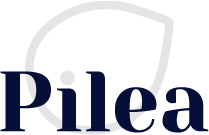Getting the Most Out of Coaching: What Should We Talk About?
At Pilea, we often hear that people are hesitant to begin working with a coach because they “don’t know what to talk about” in their sessions. We understand, of course; startup culture is all about doing x, y, and z to reach the next step or to meet another goal, so the idea of a free space without a clear path can feel unsettling.
The thing is, there isn’t one right way to receive coaching support, and the bigger revelation is that you don’t have to know what you want from coaching in order to benefit from it. We can hear you thinking now, If I don’t have to know what I want out of coaching, then what’s the point of coaching at all?
One of the ways coaching can be used is to get clear on what you want, and there are several doors that can take you into that room. Consider starting with questions like:
What do I want for my life?
What’s between me and my vision?
If everything is okay, why do I feel lousy?
Why do I keep trying different things but continue getting the same result?
From there, you and your coach can focus on more specific areas of support that play into your answers to the questions posed above. Examples include:
Leadership Development: Strengthening leadership skills, including strategic thinking, emotional intelligence, communication, influencing, and team management
Executive Presence: Developing a compelling and influential presence, enhancing public speaking abilities, improving presentation skills, and refining professional image and demeanor
Goal Setting and Achievement: Setting clear and achievable goals aligned with the organization’s objectives, establishing metrics for success, and implementing strategies to track progress
Decision-Making and Problem-Solving: Enhancing critical thinking skills, sharpening decision-making abilities, and developing effective problem-solving techniques
Time Management and Productivity: Optimizing time management, prioritization, delegation, and work-life balance to increase productivity and reduce stress
Change Management: Building resilience and adaptability to navigate and lead through organizational changes, fostering a positive and agile mindset
Conflict Resolution and Communication: Improving conflict management skills, enhancing communication strategies, and fostering effective collaboration within teams and across departments
Emotional Intelligence: Developing self-awareness, empathy, and social skills to build strong relationships, manage emotions effectively, and inspire others
Strategic Planning and Execution: Developing the ability to think strategically, create actionable plans, and drive successful implementation
Career Transition and Development: Assisting with career planning, exploring new opportunities, navigating career transitions, and preparing for leadership roles
If you’re worried about not having anything to say in your coaching sessions, then trust the Pilea Concierge to match you with an expert coach who can support you in getting the conversation rolling about what you need - both in your personal and professional life - and how you can achieve it. Kicking off a coaching relationship can feel daunting, but with Pilea’s hands-on client-coach matching process, we can help you find the right fit for starting your journey of exploration and growth.

